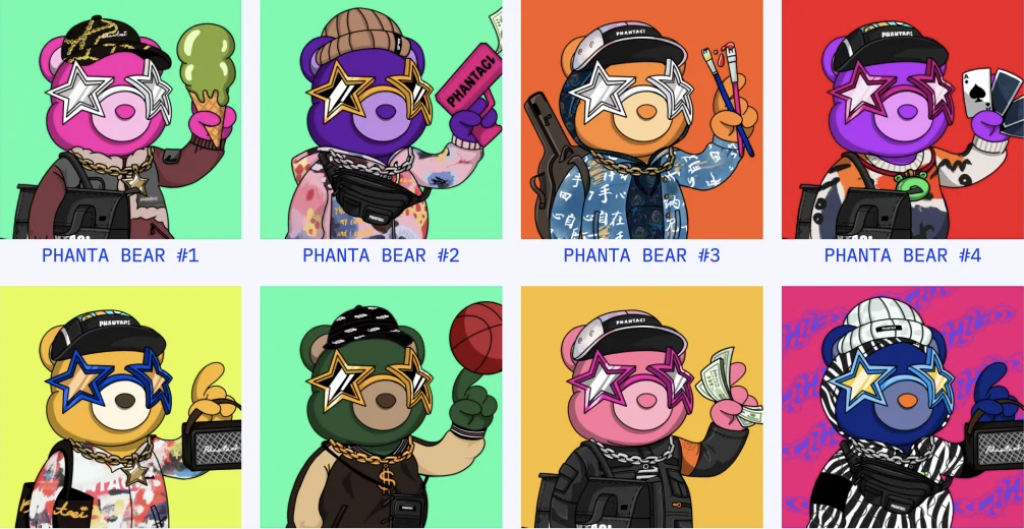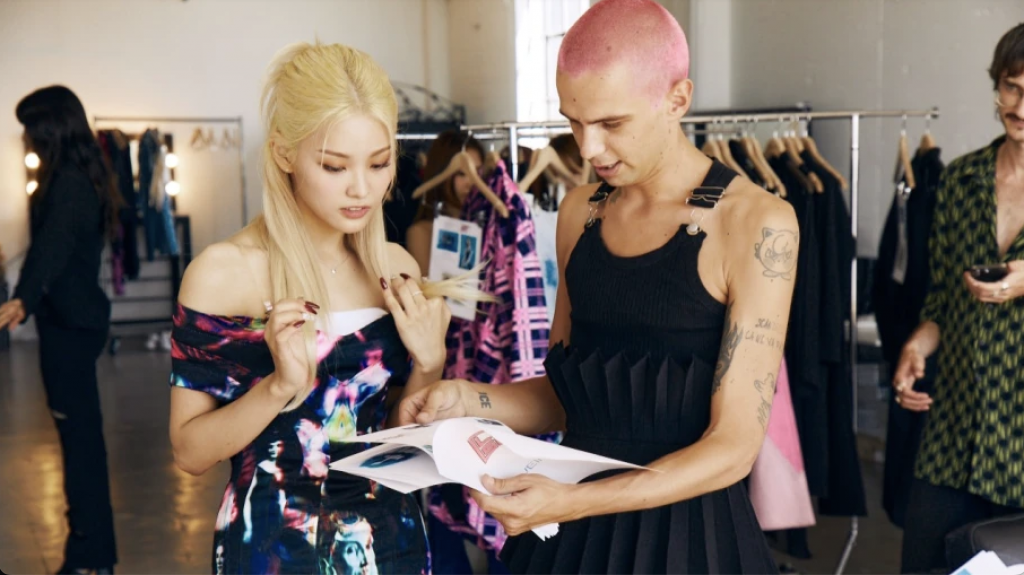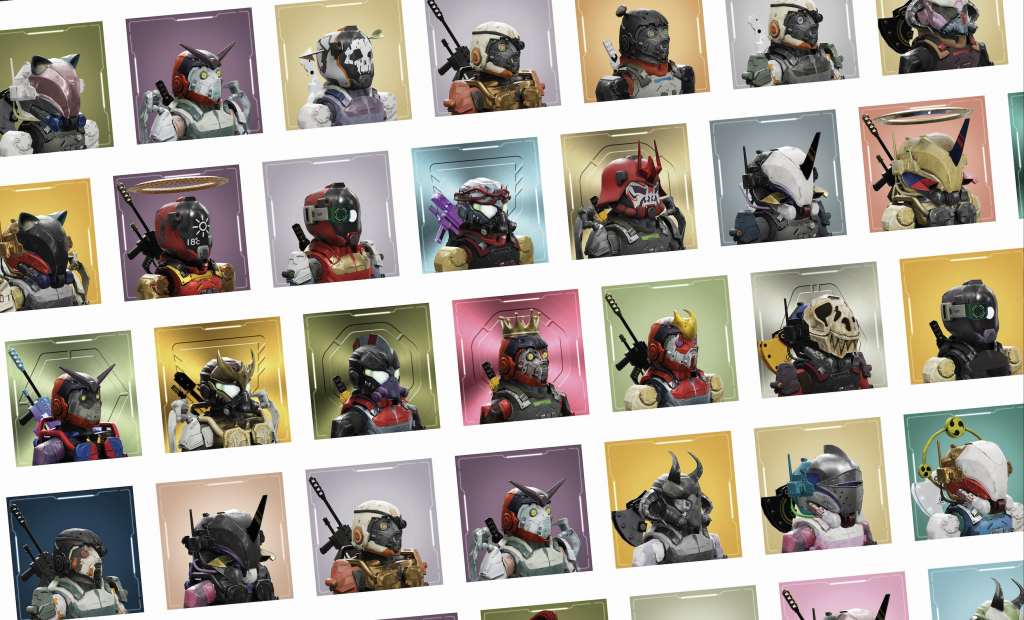Asia’s idol economy has long been a market fueled by toxicity and hysteria, yet its explosive purchasing power remains unparalleled. With the metaverse rapidly settling into its title as a billion-dollar industry, the two have, unsurprisingly, become a match made in revenue-generating heaven. Now, the continent’s most prominent entertainment stars want in on the growing landscape.
Despite its turbulent reputation, celebrities across the landmass are beginning to recognize how Web3 could become a driving force behind the bolstering of their digital presence and leverage idol-to-fan dynamics. It’s a burgeoning affair, but one that delivers a lot of potential to expand to new heights — only recently did girl group Blackpink take the win for Best Metaverse Performance at the MTV Music awards after their "The Virtual" concert via PUBG Mobile, with BTS’ Minecraft production coming up a close second.
With numerous big names investing heavily in their own virtual futures, many are turning to marketing campaigns such as digital collectibles and cross-dimensional experiences to tap into the growing Web3 market, as well as elevating their online communities by inviting fans along with them in the process.
According to a report published by iResearch Consulting Group in 2020, the market value related to the fan economy in China was estimated to be more than 619.2 billion (4 trillion RMB) in 2019, and was projected to surpass 861.7 billion (6 trillion RMB) in 2023. Meanwhile, South Korea’s K-pop industry has seen fans spending more on concerts, merchandise, and products related to their musical icons.

But Operation Qinglang, a program launched by the Cyberspace Administration of China last year which saw the tightening of policies within the entertainment industry, dealt a huge blow to the idol market. The crackdown prevented fan pages that had proliferated millions of followers, as well as limiting the number of times a celebrity or their associated products could appear on web pages. While many netizens demonstrated support for the decision, it also meant that many VIPs across the nation could no longer capitalize on their online fan groups to the same degree.
Which is where Web3 comes in. Although still somewhat in its infancy, the newfound digital space could aid in leveraging China’s idol economy. The transition to virtual could also see a surge of Gen-Z audiences following these stars and onboarding onto the space, sending the mainland's online market value on a promising upwards trajectory, despite ongoing legislations regarding the metaverse across the country.
Across Asia, Web3 also opens up a new world of prospects. The landscape acts as a melting pot of possibilities in which idols can take on celebrity ambassadorships, global-scale concerts, meet-and-greets, and more. Cyrus Lu, co-founder of NFT-native luxury brand Luxeto, believes that the metaverse is a way for personalities to cut through the noise of the oversaturated entertainment industry: “It's novel and exciting and gets the attention of the fan bases among today's overstimulating environment.”
Mandopop star Jay Chou was one of the early adopters in the idol industry. The Tawainese music icon shot into the spotlight after releasing digitally-rendered versions of his "Phanta Bears" that he sold as NFTs. The launch set a new precedent for the global crypto art market, after amassing over 10 million (69 million RMB) and breaking the record for the fastest-selling NFT in the world in terms of quantity and price.
Following this success, Chou recently demonstrated his ambitions to expand his metaversal presence by turning five of his songs’ demos into digital collectibles via platform Bohe. The collectibles can be used as keys that unlock access to an exclusive virtual space, where fans can navigate as avatars and listen to the demos. While the release gained a lot of traction on Chinese social media, fans seemed hesitant to invest, with the 10,000 keys failing to sell out.
Lu speculates that the mainland’s wavering response to collectibles could be due to its non-existent resale sector for such assets. "The feedback from the market [China] has been somewhat lukewarm, partially because there's no established secondary market for trading like OpenSea.” Beijing’s stringent bans on such platforms make it difficult for these products to increase in value or be sold on, causing them to ultimately lose appeal from the get-go.

Meanwhile, South Korean girl group Lightsum has also tapped the space after collaborating with French designer Victor Weinsanto and Web3-first agency Brand New Vision on digital clothing collection M3TALOVE. The NFT series consists of eight exclusive wearables, each designed to represent the individuality of the group’s members. Whether the collectibles prove successful remains uncertain, but the project demonstrates how Asia’s idols are striving for more exposure in the metaverse through creative endeavors like this.
Richard Hobbs, CEO of Brand New Vision, believes that K-culture in the metaverse is not only expediting, but it’s here to stay. “There have always been youth-driven trends at the intersection of fashion, music, and sport,” he observes. “In the last 10 years these have been joined by social media and other Web2 digital experiences. Now we are ready for Web3, real-time virtual events, and completely new ways of dressing and displaying identity.”
Developments across the landscape are signaling this sentiment to be true. Over the past year, an increasing number of K-pop acts have used the metaverse to create a virtual hub where they can build stronger connections with their fans. Girl group Billlie turned to SK Telecom’s Web3 service Ifland to host a meet and greet event with their fans, as part of their “K-Pop Guest House Land” after the band announced that it would be expanding its presence in the virtual space.

“Korea, in particular in Asia, is very pro-metaverse, so we see a lot of interest in how that can manifest itself in multiple ways that lead to wider engagement of both existing fans and taking K-culture to a wider global audience,” Hobbs notes. Similarly, South Korean girl group NMIXX also created a fandom space earlier this month on Zepeto, where visitors can practice dance moves and take selfies with the members using their own avatars. In the first six days, around 1 million users visited the virtual space and created more than 600,000 pieces of content on the platform.
Moreover, earlier this year, Gusto Collective and One Cool Group brought Asia’s first blockbuster piece of crypto art to life as an extension of movie star Louis Koo’s “Warriors of Future” release. Ten thousand unique avatar NFTs were launched via OneCoolGroup’s dedicated website, which have now sold out.
“Through owning an NFT from the film project, fans are directly supporting the artists or IPs they believe in. They can directly interact with the actor Louis Koo and the production team and of course, with other members of the community,” Aaron Lau, founder and CEO of Gusto Collective, explains. “Through NFT blockchain ledger technologies, creators will continue to receive royalty fees from subsequent transactions. Web3 technology is a game-changer in generating greater value through content and experiences for all stakeholders.” Not only can tokens open up new pathways for audiences to immerse themselves in, but there’s also the rewards for the artists themselves — it’s a two-way advantage for everyone involved.

In short, there’s huge scope for VIPs to engage with their communities in meaningful ways online, and evidence suggests that the appetite from fans is already there. KLKTN, a curated NFT platform which aims to elevate fandom experiences through Web3, is witnessing this reshaping of fan culture in real time. The platform’s popularity boils down to the level of added value it offers to fanbases, which can’t be replicated in the offline space. While musicians and artists are able to share their behind-the-scenes content and creative processes, they’re also able to enrich engagement with their fans by allowing them to select, purchase, and own authentic virtual "Special Edition" collectibles and digitally tokenized "Moments."
But the metaverse remains an exceedingly challenging space to get to grips with. The mass proliferation of the online terrain opens up new corners of the internet that have yet to be regulated. This increased possibility of scams and frauds poses risks to both audiences and celebs. Moreover, a rise in virtual idols across the space means personalities risk losing their cultural relevance to these new competitors who are, as a result of their widespread popularity, being swept up by labels across Asia for brand deals, ambassadorships, and promotional campaigns.
“The tight grip on the Chinese celebrity community these days has to some extent contributed to the rise of virtual idols, think Ayayi or Ling,” Lu says. “The virtual idol by nature does not come with the personal risks an IRL celebrity imposes. This might mitigate the risk brands might face when signing celebrities or brand ambassadors.” For companies, the malleability of these makes them much easier to mold to their image, and they won’t lose their appeal to scandals and the like.
Challenges may remain but for now, stars across Asia seem to be willing to take the risk. For fans and celebrities alike, the metaverse can be more than just another money-making avenue. It’s a place for fans to meet their heroes, talk with them, and feel a personal connection — something that isn’t so easily achieved in the real world.
Key Takeaways#
- Asia's idol economy and the burgeoning metaverse are becoming a revenue-generating pair, with celebrities across the continent exploring Web3 to enhance their digital presence and leverage idol-to-fan dynamics.
- Major entertainment stars, recognizing the metaverse's potential, are engaging in digital collectibles and cross-dimensional experiences, tapping into Web3's market while enhancing online community involvement.
- Despite challenges like China's Operation Qinglang impacting the idol market, the transition to virtual platforms offers a new avenue for leveraging China’s idol economy, potentially attracting Gen-Z audiences and boosting the online market value.
- Across Asia, celebrities are exploring various metaverse opportunities, from digital clothing collections to virtual concerts, indicating a shift towards creative endeavors in this new digital space despite existing challenges such as regulation and the rise of virtual idols.
- The metaverse presents a complex landscape for celebrities and fans, offering new engagement opportunities and challenges, including competition from virtual idols and the risk of scams, but remains a promising avenue for deeper fan engagement and personal connection.


